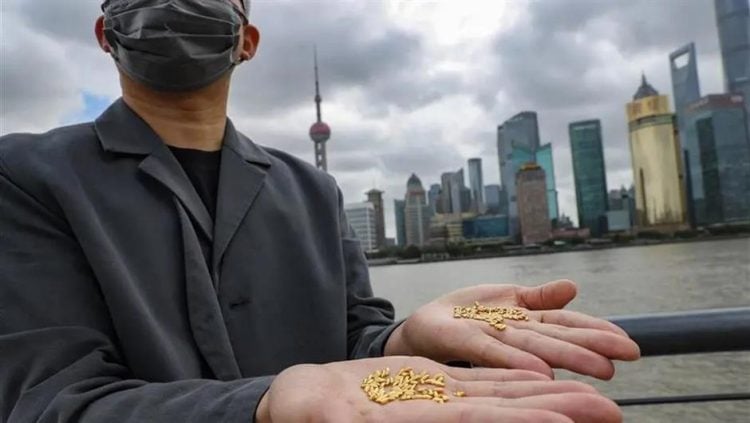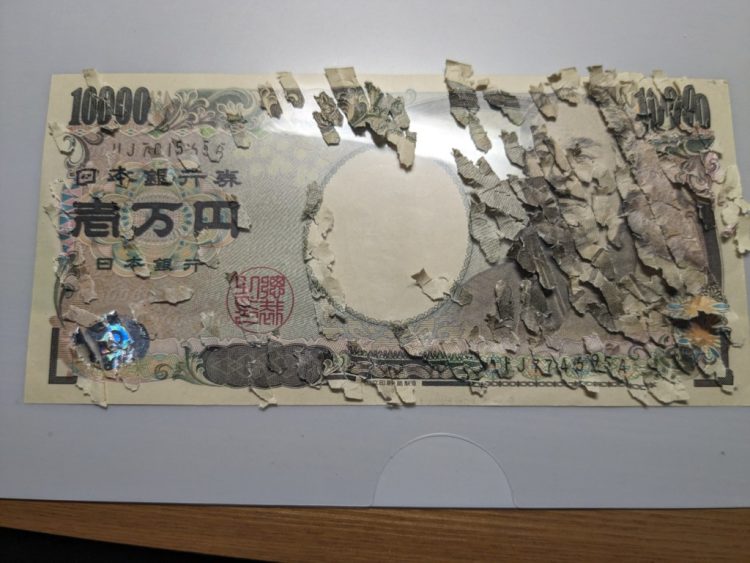Shanghai-based artist Yang Yexin has been getting a lot of criticism for throwing away 1,000 grains of rice made of pure gold as part of a performance artwork to highlight current food waste.
If you’re planning on visiting Shanghai soon, you may want to keep your eyes peeled as you walk through the city streets, as you may stumble on small precious nuggets worth a pretty penny. Local artist Yang Yexin recently released a video of himself throwing 1,000 gold grains in trashcans, in drains, in the grass, and in the Huangpu River, as a way of drawing attention to food waste in modern society. The rice grains showed in the video were made from 500 grams of gold worth over 200,000 yuan ($31,000), by a jewelry store that made them “in accordance with the actual size of each real rice grain.”











